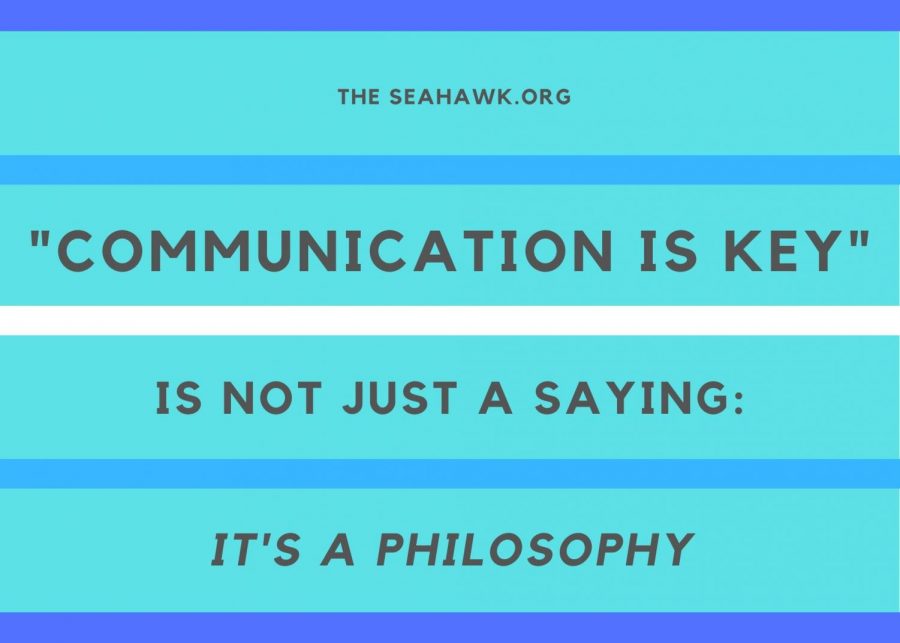“Communication is key” is not just a saying—it is a philosophy
Stop venting to your friends about serious issues and thinking that it will do anything other than air out your thoughts.
When something—or someone—is bothering me, I admit that my first instinct is to tell a close friend the entire story. Whether or not they give me good advice is another matter entirely, but oftentimes the most important thing about venting to a friend is figuring out what exactly the issue is.
There will be a moment in your story where you say just the right sentence that will twist your whole face into a frown and further fire up your dour mood, and that is an important moment because it is one of clarity. Knowing what the true problem is will help you address it further.
But that is the thing—you have to address it further.
Venting by itself is not an answer for your irritation at all; in fact, it just might be the opposite. According to an article on Medical Xpress, “research has consistently showed that venting anger is at best ineffective and in some cases is even harmful.”
A 2011 article from Psychology Today further denounces the effectiveness of venting.
“The venting does not change the situation that made us angry, it won’t prevent the situation from happening again in the future, it raises our blood pressure, and it bring [sic] negativity to our environment. The rush of venting and ranting can feel intoxicating, when it [sic] fact it’s usually just toxic,” the article says.
Spelling issues aside, the point is still clear. Venting to allies is like writing in a diary that talks back to you. You tell them all of your woes in private, and if you are lucky, your living diary will tell you how right you are, how much the other person sucks, and maybe even what to do next.
The thing is, a diary that can talk to you is also one that can talk to others. There are few things worse in a friendship or any type of relationship than secondhand bad news, so make sure you take care of business yourself.
The Psychology Today article describes the five Ws of venting—wait, why, who, write, witness—but I want to append that list and give my own tips on how to best communicate in a struggling relationship.
- Ask yourself what you hope to achieve by talking to the person. Do you want the other party to be a better person? Are you trying to mend a relationship? Know what it is you want to happen at the end of the conversation and prepare your points to reach that point. Running in blindly could lead to hurt feelings without any real benefits.
- Figure out what exactly is causing this anger. Are you really mad about your roommate coming home late, or are you mad about nine other things and just focusing on this one? It is a waste of time to get into a shouting match about the wrong thing.
- Get an impartial mediator if need be. You do not have to be in divorce court to have a spat worth mediation. A lot of issues come up because of miscommunication, so it can help to have an unbiased third party present to listen to both sides and ensure that nothing is getting lost in translation.
- Do not be scared of an unfortunate decision. I am not saying that there will be a happy ending and everyone will walk away still being friends, but I am saying that there can be comfort in realizing that you and this person will always be uncomfortable together. This opens up a real chance to part ways and move on as cleanly and early as possible. Some relationships are not worth fighting for, and cutting those losses opens up time to focus on relationships that will be worth it. You may have to lose a good friend to find a best friend.
- Please just listen to them. Whether this person is going to stay in your life or not, use this situation as a learning experience. Even if you do not think you have done anything wrong, it is at least worthwhile to figure out that the other party thinks you have done wrong. It is always possible that you have a toxic trait or two that you have yet to address, and even if this last person could not handle it, at least you can fix that for future relationships. Do not get into a discussion simply to win and make your next point. Take in everything that they are saying.
People will not stay in your life forever, but it is important to get the most out of all of your relationships. Make them last, or figure out why they cannot. Either way, these moves require two parties, and if the other person will not budge, is it truly a relationship worth salvaging?
And, if you are the one blocking yourself off, know that the same question can be asked about you.







